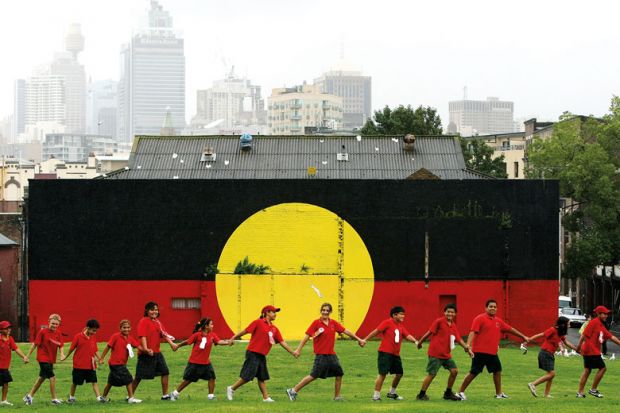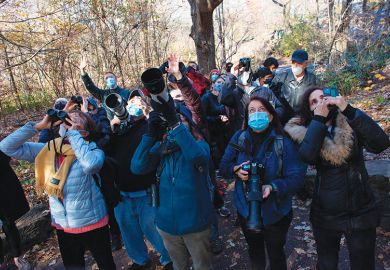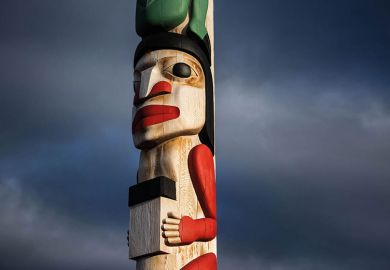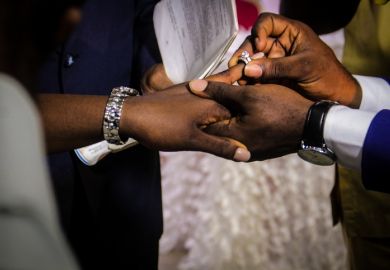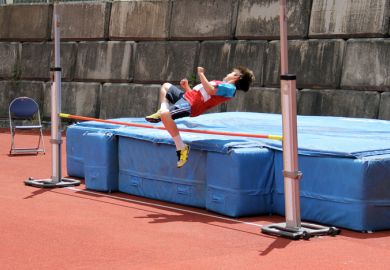Reconciliation statements can be a “get-out-of-jail-free card” that absolves universities of obligations to work more meaningfully with Indigenous communities, the Times Higher Education World Academic Summit has heard.
Shaun Ewen, pro vice-chancellor (place and Indigenous) at the University of Melbourne, said reconciliation in the Australian context had proven “helpful to a point” but had “got in the way of some action”.
“There are foundational things [that] we can and should be doing…around land recognition, access to higher education, acknowledgement in curricula, research processes, ethics and so on,” he told the event.
Professor Ewen said meetings in Australia often began with acknowledgement-of-country ceremonies. “Terrific. Then what?
“Everyone likes a good performance, but how do we [get beyond] the performative aspects of acknowledgement, and move to the transformative? Repairing past injustices is not just acknowledging them.”
Susan Hill, director of the Centre for Indigenous Studies at the University of Toronto, said reconciliation should be seen as a “starting place” for conversations. “Far too often, people assume that it’s a destination,” she added.
“Reconciliation suggests that the only thing we need to do is to make right what has been done wrong. That doesn’t give us much to work with about how we move forward and build a future together. Not to say amends don’t need to be made, because they do, but we have to go beyond that.”
She said the North American construct of “treaty relationship” was “never meant to be a single event or destination. It was supposed to be a framework from which we would travel together throughout the future.”
Professor Hill said reconciliation needed to be seen as “a call to transform the way you do business”, not simply gestures such as compensating Indigenous people for decades of exclusion by allocating them extra seats in the law school.
“It has to signal a change in the way institutions do business," she continued. "And it isn’t solely about the relationship with Indigenous people. It needs to [address] the way you do business with all people, so that we’re looking at equity from multiple perspectives.”
This year’s revelations that hundreds of Indigenous children were buried at old boarding schools in Saskatchewan and British Columbia have appalled Canadians – including, Professor Hill said, many academics – even though such atrocities have been documented “for well over 25 years”.
They were exposed by the Royal Commission on Aboriginal Peoples in 1996 and the Truth and Reconciliation Commission from 2007, she said. Survivors had told of children being buried without their families or communities being notified.
Yet the revelations had shocked people at most universities in Canada, including institutions built near or on land formerly occupied by residential schools. “It’s really on the shoulders of universities to make sure that their students, their faculty and their staff are not unaware.”
Professor Ewen said many Australians had been oblivious to Aboriginal deaths in custody and the removal of Indigenous children from their families, despite reports published decades ago. “If you compare the recommendations of those reports with [those] of the Truth Commission in Canada, and the relevance to higher education, [they] won’t be so different.”
He said the widespread lack of knowledge of such subjects was partly the consequence of universities “ignoring place, and people of the place…over a couple of centuries”.
Register to continue
Why register?
- Registration is free and only takes a moment
- Once registered, you can read 3 articles a month
- Sign up for our newsletter
Subscribe
Or subscribe for unlimited access to:
- Unlimited access to news, views, insights & reviews
- Digital editions
- Digital access to THE’s university and college rankings analysis
Already registered or a current subscriber? Login
